From Tendulkar's Desert Storm To Sreesanth's Aggressive Celebration: Top 10 Iconic Moments From IND vs AUS Rivalry - In Pics
In the gripping theatre of cricket, where every match unfolds as a saga of passion, skill, and raw emotion, the encounters between India and Australia have been nothing short of epic. It's a clash that transcends boundaries, igniting the spirits of millions and etching tales of glory and heartbreak in the history of the gentleman's game. From the majestic whirlwind of Sachin Tendulkar's "Desert Storm" to the fiery redemption dance of S Sreesanth, these moments are more than cricket; they are the beating heart of a riveting rivalry that has captivated fans across the globe. Join us as we delve into the top 10 iconic moments, each a chapter in the dramatic saga that defines the unparalleled intensity of India versus Australia clashes. Buckle up for a journey through the highs, lows, and unforgettable theatrics that make this rivalry one for the ages.
)
On March 24, 2011, Yuvraj Singh's heroics shattered Australia's dream of a fourth consecutive World Cup title. India's five-wicket victory marked their first World Cup win over Australia in 24 years. Chasing 261, openers Sehwag and Tendulkar set the stage, and despite wobbles, Yuvraj's unbeaten 57, along with Raina, sealed the win. Yuvraj's stellar all-round performance defined India's triumphant 2011 World Cup campaign.
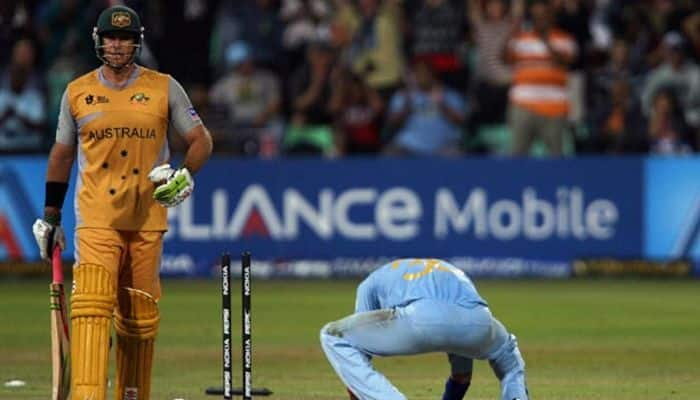
In a blistering flashback, Sreesanth's aggressive spell in the 2007 T20 World Cup semi-final against Australia wasn't just about scalping wickets; it was a revengeful dance of triumph. Remembering the 2003 World Cup defeats, he revealed, "I just wanted Australia to be defeated. I want to kill them literally." His jubilant celebration after dismantling Hayden's stumps remains etched in memory, a fiery punctuation to a spell of redemption.
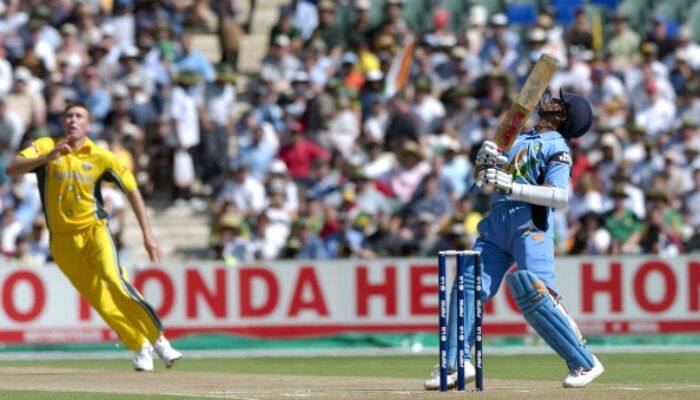
In a defining moment etched in cricketing history, Glenn McGrath's delivery to Sachin Tendulkar during the 2003 World Cup final left an indelible mark. The ball, short of a length, tempted Tendulkar into a pull shot, but the extra bounce caused it to sky towards short mid-wicket. With unwavering determination, McGrath, sensing the gravity of the situation, positioned himself to take the catch, inflicting a major blow to India's aspirations. Tendulkar's dismissal for a mere 4 runs proved to be a pivotal juncture, showcasing McGrath's prowess and leaving an enduring impact on the collective memory of cricket fans worldwide.
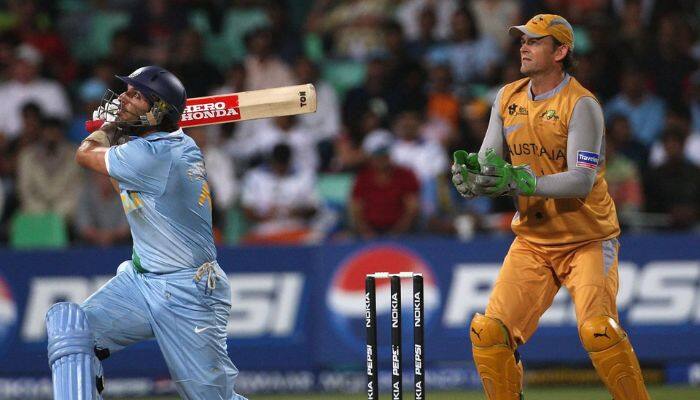
In a pivotal moment during the 2007 T20 World Cup semi-final against Australia in Durban, Yuvraj Singh delivered a memorable performance. The left-hander's explosive innings of 70 runs off 30 balls, featuring five fours and as many sixes, propelled India to a formidable total of 188/5. Despite Stuart Clark dismissing Yuvraj in the 18th over, India secured a 15-run victory, ensuring their spot in the final and eliminating Australia from the inaugural T20 World Cup.
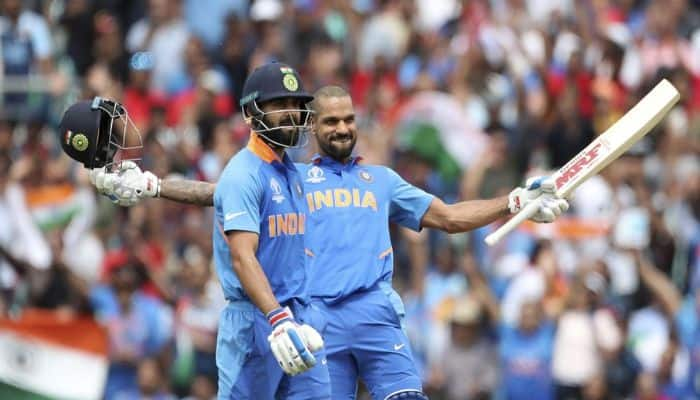
In a dominating performance against Australia at The Oval, Shikhar Dhawan scored his 17th ODI hundred and 3rd in World Cups. Opening with Rohit Sharma, they added 127 for the 1st wicket, the first Indian openers to achieve a century stand against Australia in any World Cup match. Dhawan, under pressure after a recent failure, showcased his big tournament prowess with thrilling shots, solidifying India's strong opening partnership.
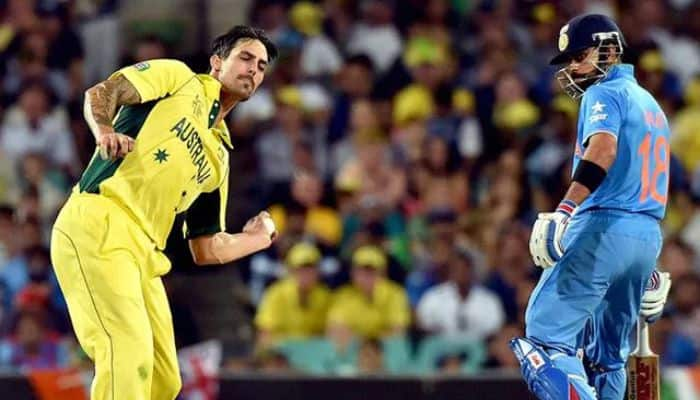
During the 2015 World Cup Semi-finals, Virat Kohli's dismissal for just 1 run against Australia echoed Sachin Tendulkar's fate in the 2003 World Cup final. Kohli top-edged a delivery from Mitchel Johnson, reminiscent of Tendulkar's iconic moment, only to be caught by Brad Haddin behind the wickets. Despite Kohli's earlier impressive performance, scoring 305 runs at an average of 50.83 in 8 matches, this dismissal marked a significant turn of events in the semi-final match.
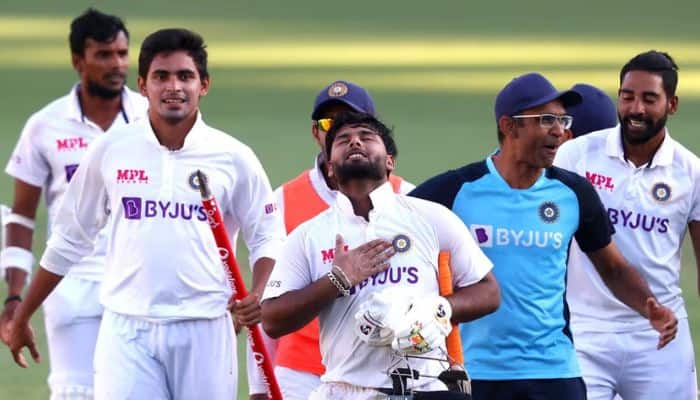
Rishabh Pant's fearless and breathtaking innings at the 'Fortress Gabba' secured a monumental victory for India against Australia in the Border Gavaskar Trophy. Pant's unbeaten 89 off 138 balls guided India to chase down an improbable target of 328, marking a triumphant end to a series that showcased the team's resilience in the absence of key players. Stand-in captain Ajinkya Rahane praised the young men who defied odds, emphasizing that cricket is more than just bat and ball. Ravi Shastri defended Pant's inclusion, hailing him as a match-winner with the ability to turn any game around.
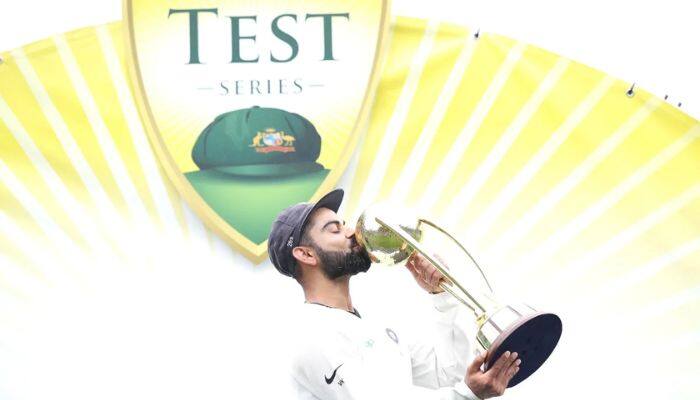
On January 7, 2019, Virat Kohli's Indian cricket team etched its name in history by securing the first-ever Test series win in Australia. Battling without the services of Warner and Smith, banned due to the Sandpaper Gate scandal, India triumphed 2-1 in the four-match series. This victory, encapsulated by Kohli kissing the Border-Gavaskar Trophy, fulfilled VVS Laxman's long-cherished dream of India winning in Australia, marking a pivotal moment in cricketing history.
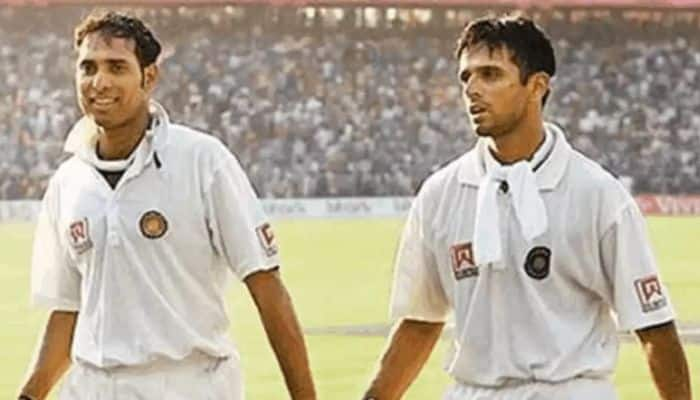
Australia dominated the first Test in Mumbai, posting a formidable 445 in the first innings in Kolkata. India's struggles continued as they were dismissed for a mere 171, forced to follow on. VVS Laxman (281) and Rahul Dravid (180) orchestrated a remarkable turnaround with a 357-run partnership. Harbhajan Singh's heroics on the final day sealed India's victory, leading them to triumph in the series 3–1.
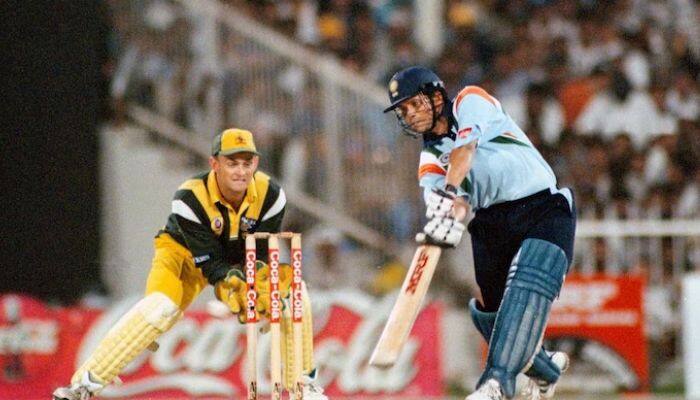
Dubbed as Sachin's 'Desert Storm,' the series showcased a fierce battle between Sachin Tendulkar and Shane Warne, hailed as the world's finest batsman versus the premier spinner. Tendulkar's dominance was evident as he pulverized Warne, scoring a remarkable 143 to propel India into the Coca Cola Cup final. Undeniably no fluke, the Master Blaster delivered again with a stunning 134, securing India's victory over Australia in the final.

